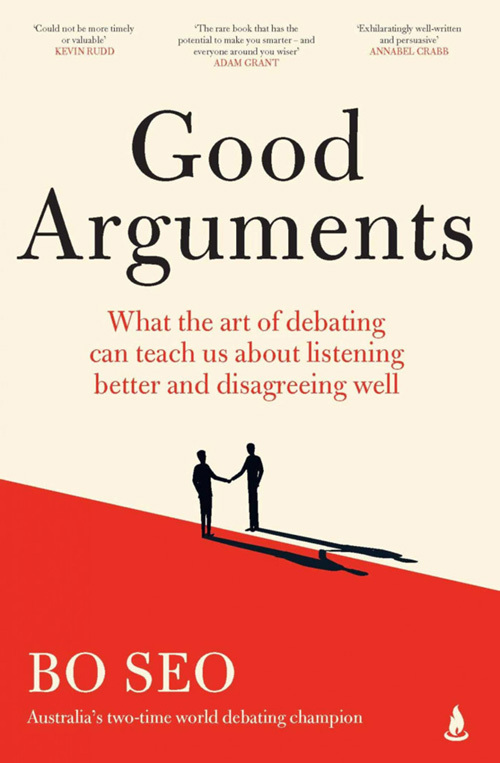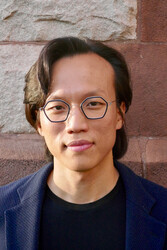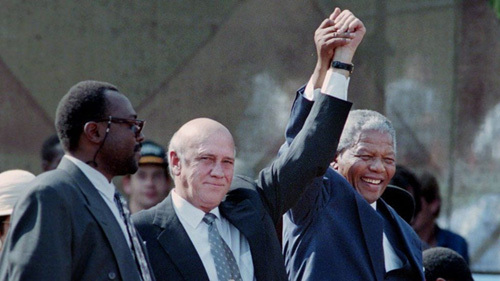- Autumn 2023
- Good Arguments Bo Seo

Bo Seo is a Korean Australian who attended Barker College on Sydney’s Upper North Shore, and was winner of the World Schools Debating Championships in 2013 and World Universities Debating Championship in 2014 for Harvard. He is currently a juris doctor candidate at Harvard Law School.

This book is largely based on his experiences as a competitive debater. The author avoids making this a sterile instruction manual by deftly interweaving personal anecdote, thoughtful self-reflection and clearly articulating his vision of how to ‘disagree well’ in broader interpersonal and social contexts.
Adopting an unforced literary style, Good Arguments traces the arc of a competitive debater from primary school in Korea and Australia through to graduating from Harvard, and becoming a cadet journalist for the Australian Financial Review. His initial response to being silenced in the playground for want of English language skills was to avoid conflict. That was until he found within the formal rules of debate the freedom to express his ideas and individuality.
The book charts the author’s inner growth alongside his external trajectory, moving from childhood innocence to mature wisdom. For that reason, anyone who is a fan of the Bildungsroman genre exemplified by the novels of Hermann Hesse will find this an engaging and enjoyable read.
The quality of the writing shines through in sharply drawn character sketches and the atmospheric evocation of auditions, trials and final rounds of debating competitions. For example, at the final round of the World Universities in Kuala Lumpur, Malaysia: From my seat on the stage. The audience of a thousand people seemed to form one backdrop. The dark, oceanic mass rippled in parts and sparkled in others, but for the most part, remained a mystery. He succinctly conveys the bottled intensity of his debating coach at the World Schools when interrupted by the Maghreb call to afternoon prayer:
Bruce sighed and sank back in his chair, resembling in sound and appearance a volcano asked to delay its eruption. To disagree well, the following conditions must be present.
The argument must be:
• Real. That is, an actual difference of opinion between the two sides and not arguing for the sake of it;
• Important. The topic of disagreement must be important enough to justify an argument;
• Specific. The subject must be specific enough to allow the two sides to make some progress towards resolving or ameliorating it;
• the goals of the two sides must be Aligned. The two sides are aligned in their reasons for engaging in the disagreement.
That gives the acronym, RISA. RISA embodies the practical wisdom of knowing when to fight or let go needed to argue well in the world outside of debating competitions. It is in part an answer to the criticism that debate is glib. It also aims at eradicating argument that seeks, not the truth, but victory over an opponent by any means.
Where RISA is satisfied, there are five rules that assist in ensuring clarity of meaning during argument:
1. no abstract words;
2. no confusing metaphors;
3. no excess qualification;
4. no buried leads;
5. no thoughtless repetition.
Expressed positively and expansively those rules are:
• use concrete words;
• limit the use of metaphors and if used keep them simple;
• establish the main point before considering qualifications, exceptions and counterarguments. Otherwise there is the risk that, ‘In a bid to be faultless we fail the more basic task of getting the message out’;
• start with the conclusion of your argument and say the minimum amount to prove it;
• consider the purpose of repetition so as not to dilute the message: ‘One rule of thumb: when you’re 80 per cent satisfied with how you have delivered the message, move on.’

The author’s didacticism is paired with a teleological goal of reducing the level of damage arising from the pursuit of bad arguments in the world generally. Yet if the principles and rules for arguing well were only available to competitive debaters that goal would be unachievable. Since the formation in the eighteenth century of the first debate clubs at St Andrews, Cambridge and Oxford Universities, the world of competitive debate has largely been dominated by a small and privileged group of students crammed to the boater-brim with cultural capital, wafted to success on a magic carpet of money with the illusion of having made it there on merit alone. For example, when Bo Seo was selected to compete at the world championships in Turkey, consider the following counter-factual:
‘Mum. Dad. I’ve been selected to compete in the world championships! Can you buy me a plane ticket to Turkey?’ ‘If you can’t get there on your own merit you’re not going. We don’t have that money. Also, why are you still going to school instead of working to help pay the bills. Get out of our house freeloader!’
In that case, despite his obvious merit, Bo Seo would never have become a world champion debater in Turkey, probably not been accepted into Harvard or have been able to afford it if accepted, and this book, based on those experiences, would never have materialised. Further, whoever won in Turkey instead of Bo Seo could not have won on merit alone (for similar reasons) and could not truly consider themselves the best debater in the world despite winning a trophy, because the best debater never got on the plane. It seems that Bo Seo is aware of this dilemma. The tools for disagreeing well are fortunately cheap and commonly available.
In the chapter titled ‘Self-Defence: How to Defeat a Bully’ debate bullies are described as follows:
‘Bullies used the adversarial format to bludgeon opponents and used rhetoric not to enhance but to elide reason.’
Some unscrupulous traits of the debate bully which may strike a chord among practising barristers, include:
• subtly changing the topic;
• goading the opponent into anger;
• misstating the opponent’s points and twisting their words;
• disrupting. In formal debate, that might be calling out in the middle of opponents’ speeches. In the courtroom it might take the form of heckling from the bar table while the opponent is making submissions, or objections aimed at breaking the flow of cross-examination or forestalling an imminent blow. Bo Seo advises against dealing with disruptions by cutting short or rushing through argument, which would allow the disrupter to ‘control the flow of time in the exchange’, or responding like for like, or seizing on each heckle. Rather, he advises that each pause occasioned by an interruption should be counted as minutes to use later and occasionally to ‘stop and name’ the behaviour. For bar table heckling, sitting down mid-submission and observing, ‘My learned friend wishes to speak’;
• ad hominem attacks. Note that it is important to avoid this when stopping and naming a disrupter’s behaviour (see preceding point);
• ‘you also’ attacks, using counter-claims to avoid directly answering the question;
• setting up a ‘straw man’ to create a distorted version of the case. Bo Seo’s antidote is to correct the record by spelling out the original argument and its distortion before returning to the actual claim;
• all attack, all the time;
• never committing to a position so that the goalposts constantly move, requiring you to pin the opponent to a position;
• the brawler who turns an argument into a free-for-all in the hope of securing a measure of success by creating an impression of dominance. The brawler’s aim is not to persuade but to silence, marginalise and break the will of their opponent. The required response is to restore the structure of debate.
By the end of his journey Bo Seo has gained sufficient wisdom to recognise the boundaries of competitive debate in its application to the real world where the stakes are high. The arbitrary allotment of sides in competitive debate severs the connection between argument and conviction. To paraphrase the title of a Milan Kundera novel, it is the unbearable lightness of debating. In Kundera’s novel, The Unbearable Lightness of Being, when the tanks roll into the central square the everyday ephemera of love take on an almost unbearable weight. Because of what is at stake. The debater’s dilemma is the mirror of this phenomenon. When the stakes are real and high there are more important aspects to an argument than simply winning. That is where the responsibility to disagree well emerges. What is required to undertake such a responsibility is largely alien to competitive debate – empathy.
Like Scout’s epiphany in To Kill a Mockingbird when seeing Boo Radley’s view from the porch, Bo Seo comes to the realisation that the key ingredient to disagreeing well in life is the empathy that comes from placing yourself in the other person’s shoes. Bo Seo describes the change of perspective that comes with ‘sideswitching’ (to use debating jargon): From the switched position, we also saw ourselves in another light. We entertained the possibility that we might be the ones in error – that our beliefs were the results of certain choices and assumptions and not others; that we might be the ones who had to be tolerated, accommodated, or stopped; that opposition to us was natural and expected.
An apt illustration of disagreeing well given by Bo Seo is the televised debate between Nelson Mandela and F.W. de Klerk ten days before the first post-apartheid election was held in South Africa. The latter had been a highly successful lawyer before taking up political office. As President he had overseen Mandela’s release after twenty-six years as a political prisoner. Winning the election was a virtual certainty for Mandela, irrespective of the outcome of the debate. What was at stake though was the well-being of a nation which needed both Black and White citizens to engage in its rebuilding after the election. Bo Seo describes what happened: …Mandela pressed his case against de Klerk with prosecutorial zeal. He began his concluding remarks with such harsh criticism… that some members of the audience groaned. But then, within the space of one sentence, Mandela changed tack. ‘We are saying let us work together for reconciliation and nation building,’ he said. The candidate reached out his left hand and held, for a moment, his opponent’s right hand. ‘I am proud to hold your hand. Let us work together to end division and suspicion.’ Mandela’s hand-holding gesture took in the bigger picture and the stakes involved. It was a gesture he repeated many times afterward in the public arena, including at his inauguration as President in 1994. Mandela was not a school debater, but he was a boxer. As the saying goes, you don’t play boxing. In some ways the gesture resembles that of a boxer holding his opponent’s hand aloft at the end of a hard-fought match. A display of empathy which appeared impossible only moments before. It recognises and respects the opponent for the danger and strugglethey have faced and overcome, win or lose.
Bo Seo wisely concludes that for debate to serve a positive role it has to know its place within the bigger picture in which life is not a game.
Reviewed by Sean O’Brien

